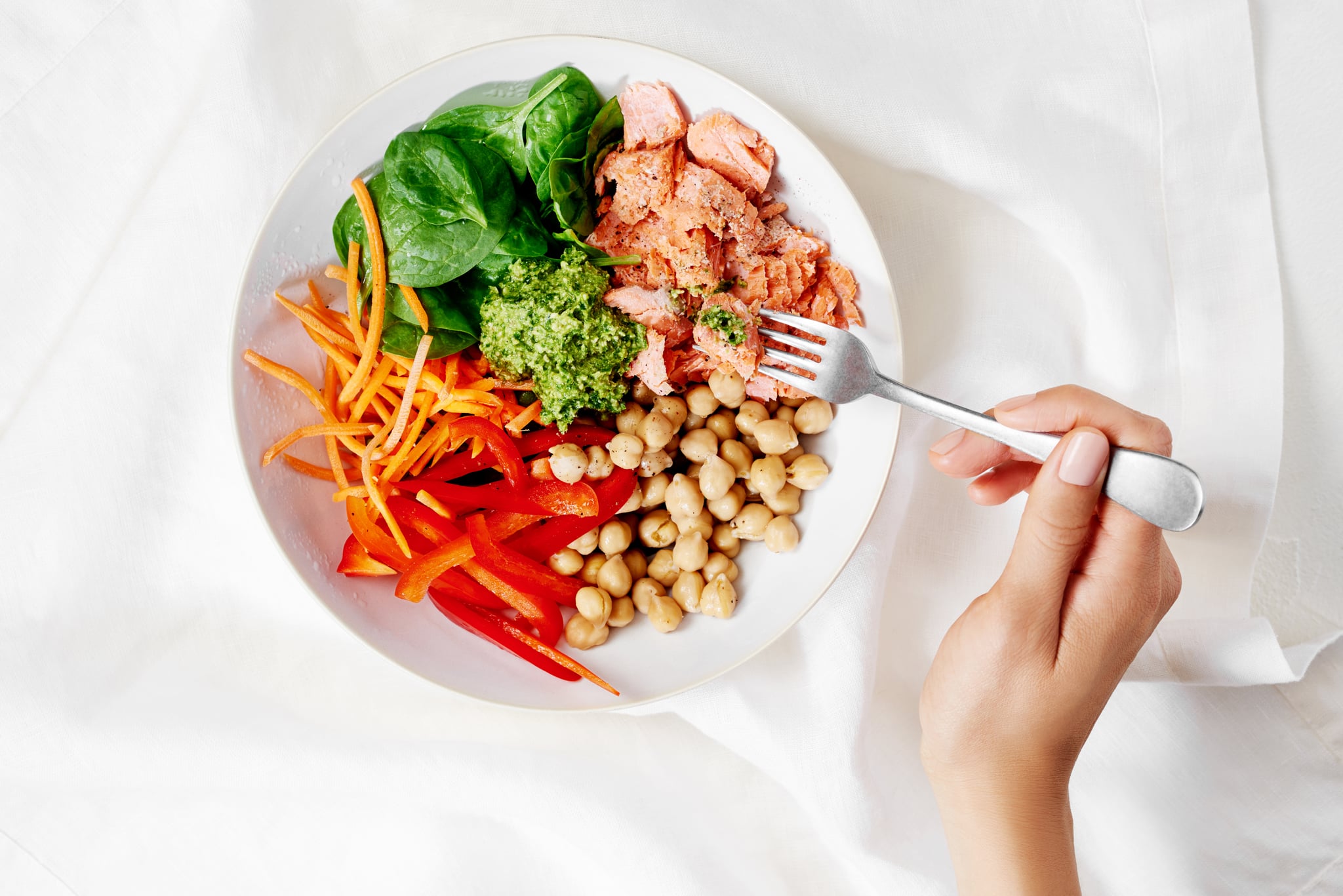Polycycstic ovarian syndrome, or PCOS, is a hormonal condition that affects eight to 20 percent of reproductive-age women worldwide, according to the National Institutes of Health. Symptoms of PCOS include ovarian cysts, irregular periods, high levels of male hormones, excess hair growth, acne, and weight gain. Although these symptoms can be controlled with medication including birth control to regulate hormones and Metformin to regulate blood sugar, the biggest way to get PCOS under control is through lifestyle changes: sleep, stress management, exercise, and — most notably — diet.
Since many women with PCOS also have insulin resistance, treating the condition requires a tricky balance of eating the right foods at the right times. Unfortunately, PCOS is a complex condition that doesn't adhere to a one-size-fits-all approach.
"Lifestyle management is recommended as a first-line treatment of PCOS; however, studies have not proven which type of diet is best," said PCOS expert Martha McKittrick, RD, CDE, and certified health coach. "This is probably because each woman is an individual and has different genes, metabolisms, medical issues, and phenotypes of PCOS."
Even if there's not one type of diet that's best for everyone with PCOS, there are some general diet tips that everyone with PCOS can benefit from. Here are the main guidelines McKittrick recommends:
Balance Carbs With Protein and Fat
McKittrick says balanced meals that contain protein and fat along with your carbs control blood sugar, prevent insulin spikes, and ward off carb cravings. For example, a slice of whole grain toast with natural peanut butter is more satiating than a bowl of cereal with fat-free milk since the peanut butter is higher in fat and protein to balance out the carbs from the toast. However, she emphasizes that it's a general guideline and not a rule you need to stick to 100 percent of the time; sometimes you may just want an apple by itself or a steak with salad and no carbs.
Eat Low-Glycemic Foods
She recommends is eating foods that are lower on the glycemic index and have a lower glycemic load, such as whole grains, fruit, and vegetables, instead of higher glycemic foods such as potatoes, white bread, rice, and refined sugar. Eating fiber-rich foods will also prevent blood sugar spikes and keep you feeling fuller longer.
Stick to Healthy Fats
Healthy fats such as nuts, nut butters, avocados, and olive oil will keep you feeling satiated and can help you lose weight. Omega-3 fats, like the ones found in fatty fish, walnuts, and canola oil, may decrease the risk of heart disease, improve insulin resistance, and decrease inflammation.

Aucun commentaire:
Enregistrer un commentaire